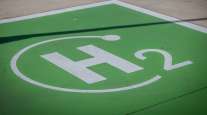Staff Reporter
Governor Puts North Carolina on Fast Track for Zero-Emission Trucks

[Stay on top of transportation news: Get TTNews in your inbox.]
Gov. Roy Cooper signed an executive order positioning North Carolina to be a national leader in making and using zero-emission medium- and heavy-duty vehicles.
“North Carolina is already a national hub for truck and bus manufacturing and supply chain development, and we should not miss the opportunity to lead the market-driven transition already underway to cleaner and increasingly cheaper zero-emission technologies that benefit our economy and our communities,” Cooper announced.
Called “Growing North Carolina’s Zero-Emission Vehicle Market,” Cooper signed Executive Order 271 on Oct. 25 with several directives.
Read more about Executive Order No. 271 and how it will help support the market-drive transition to zero-emission trucks and buses: https://t.co/kESUhtgXlz — Governor Roy Cooper (@NC_Governor) October 25, 2022
The first mandate is an advanced clean trucks rule requiring manufacturers to sell a growing percentage of zero-emission medium- and heavy-duty vehicles. A proposed rule for the mandate with regulatory analysis is to be submitted for consideration by May 15, 2023, after stakeholder collaborations with fleet owners, automakers, local governments, electric utilities and others.
The objective is for manufacturers to increase zero-emission vehicles sales targets and incentives to encourage market segment growth.
“The sales targets would also drive investment in other zero-emission technologies including charging and fueling infrastructure, while bolstering North Carolina’s competitiveness in seeking billions of dollars in federal funding for clean energy development,” according to the governor’s office.
The announcement hailed North Carolina as a national hub for making medium- and heavy-duty trucks and being well-positioned as a national leader to spur market development for zero-emission vehicles.
The governor’s mandate includes having the state develop by next September an infrastructure assessment for zero-emission vehicles that evaluates needs, such as electric vehicle charging station types and locations in urban and rural areas.
Want more news? Listen to today's daily briefing above or go here for more info
The directive revealed that North Carolina will apply for additional federal funding to bolster its zero-emission infrastructure and market needs.
North Carolina’s department of environmental quality is investing $93.5 million in the state’s EV charging infrastructure to supplement $109 million in federal funding for EV charging.
State Cabinet agencies must now prioritize leases and purchases of zero-emission vehicles weighing more than 8,500 pounds. The order requires zero-emission trucks to be added to North Carolina’s contract terms on state vehicle replacements.
Cooper’s announcement also featured supporting comments from private industry stakeholders.
“More and more, companies are beginning to make the shift to electric fleets and want policies put in place that will make this transition easier. At Siemens, we have a goal to electrify our 10,000-vehicle fleet and achieve our net-zero vision by 2030,” said John DeBoer, head of Siemens eMobility North America. “Siemens has a strong history in North Carolina, with more than 3,000 employees working across the state and our electrification and automation manufacturing hub in Wendell.”
Chris Nordh, senior vice president of ABB E-mobility Fleet and Transit, noted that the company is already providing charging solutions for truck electrification in North Carolina and other states. “Electrifying trucks and fleets will create jobs, save truck owners and operators money, and mitigate climate change — all things that benefit North Carolinians,” Nordh said.




